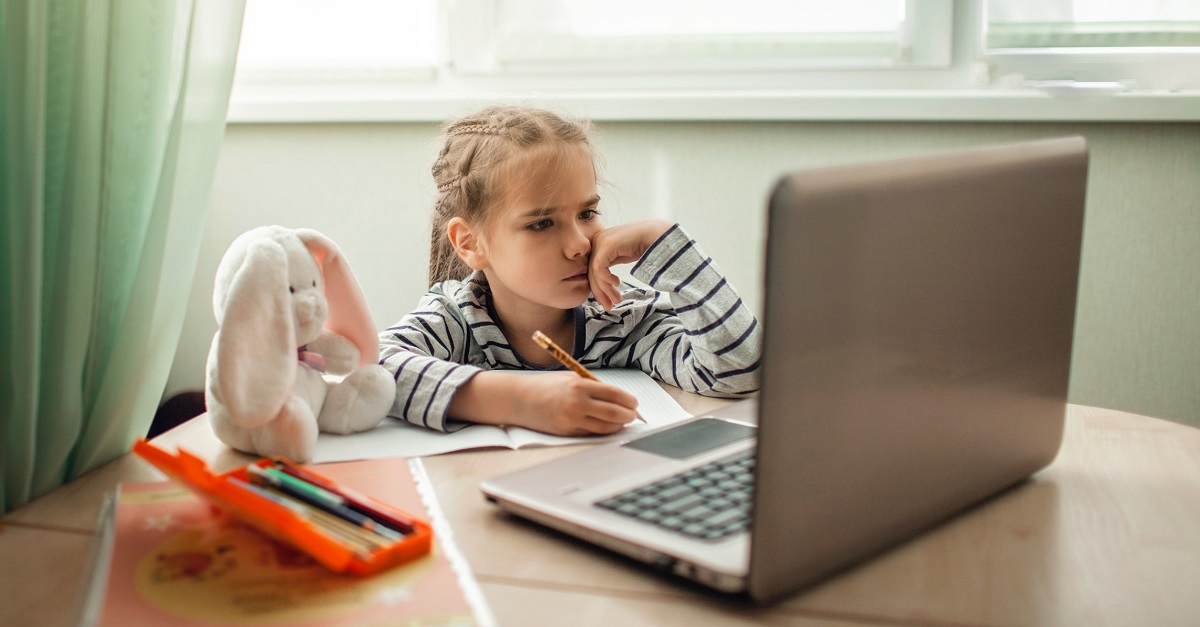
It likely took most people a few weeks to learn how to work from home. The decision came so quickly that many people couldn't even clear off their desk spaces before being told that their office was now home-based. While working from home has a lot of pros, it also has cons. For one, you probably have a Netflix account. And you've probably realized that it's far too easy to get distracted by that aforementioned Netflix account.
School is the same way. Plenty of kids around the nation are resorting to at-home learning due to the spread of the virus and the fear of catching it. For many, this situation may be a dream come true. So many kids are terrified of school because of things like excessive bullying, or the fear of not being on the same pace with the class. But others won't know how to thrive in an atmosphere like this. It's hard to help children focus, and even harder if you're also working from home. It's something weighing on parents' minds everywhere. While some districts gave parents a choice of either sending their kids to school or doing virtual learning, it wasn't an easy decision.
It's important to figure out ways to get your kids to stay keyed into their schoolwork. But remember that they're only human. They're experiencing the difficulty of this situation, too, and likely miss the social aspect of school. Be easy on them as they find their routine, and hopefully, they'll have a better time adjusting to these changes.
Here are some great ways to help children focus.
1. Turn off the electronics.
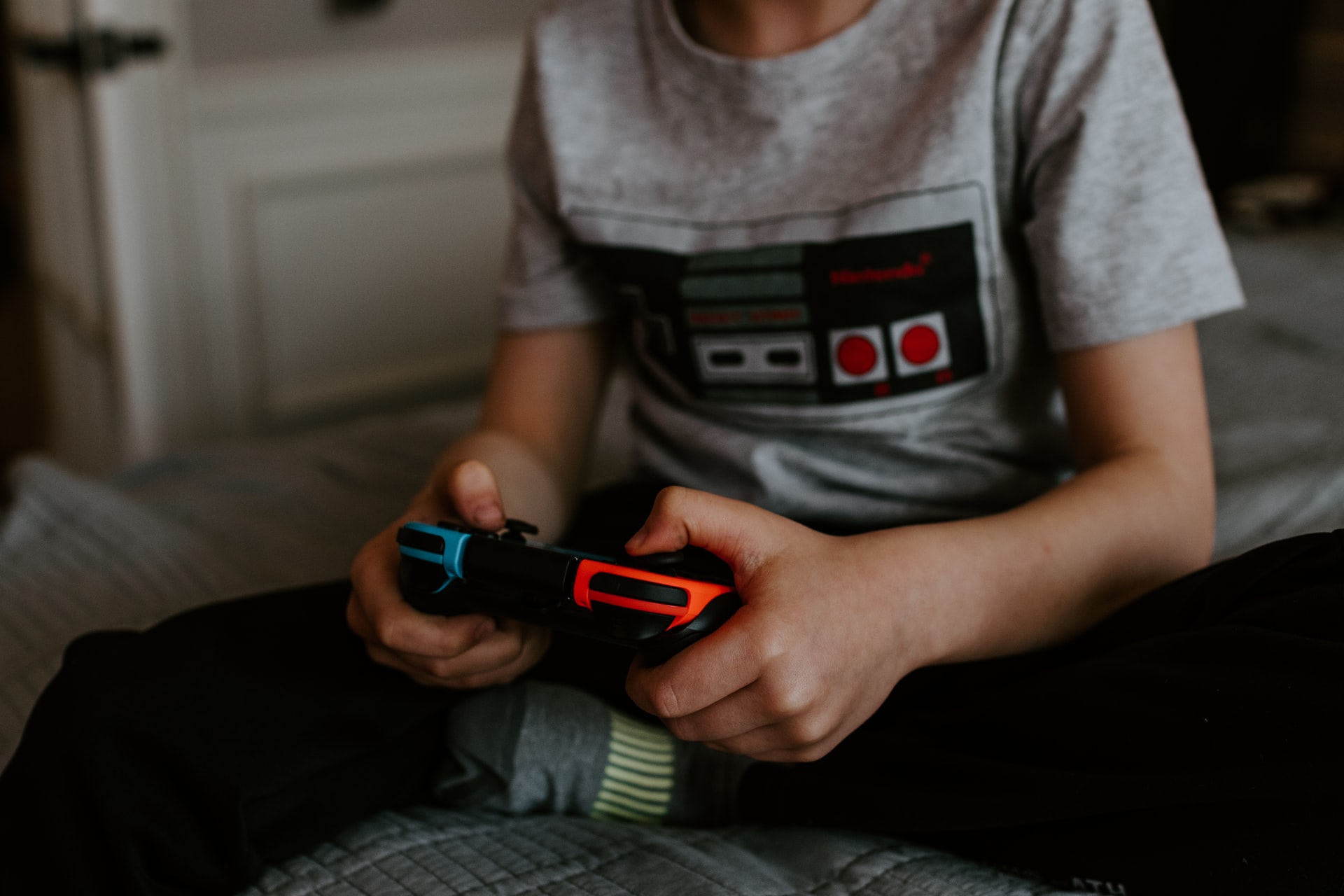
At least the TV. Television can often provide calming background noise, but it's a great way to get distracted. That said, it's OK to have a brief break in their day if it's something they need. But when a teacher is lecturing, or if they need to read up on some material online, the television should be shut off.
The same goes for their cellphones. This one may be a little trickier. Ask your children to put their phones away in a box or somewhere out of reach. Since they wouldn't be able to text in a school setting, it's a good way to make their educational workspace feel more official.
2. Allow for some time outside.

Physical activity is still a big part of the school day. Kids often walk to class or have some type of gym class to help get them moving. On nice days, you should allow your kids some time to safely get some fresh air.
"Recess is where children exercise their bodies and practice their social and emotional skills," writes Rebecca A. London and William Massey for EdSource. "Recent news that remote learning will extend to the fall for many of California's schoolchildren further amplifies this need. Making up for learning losses is on every educator's mind, but children won't be ready to hunker down with their books after many months away from school routines and social interactions."
3. Talk to them about their assignments.
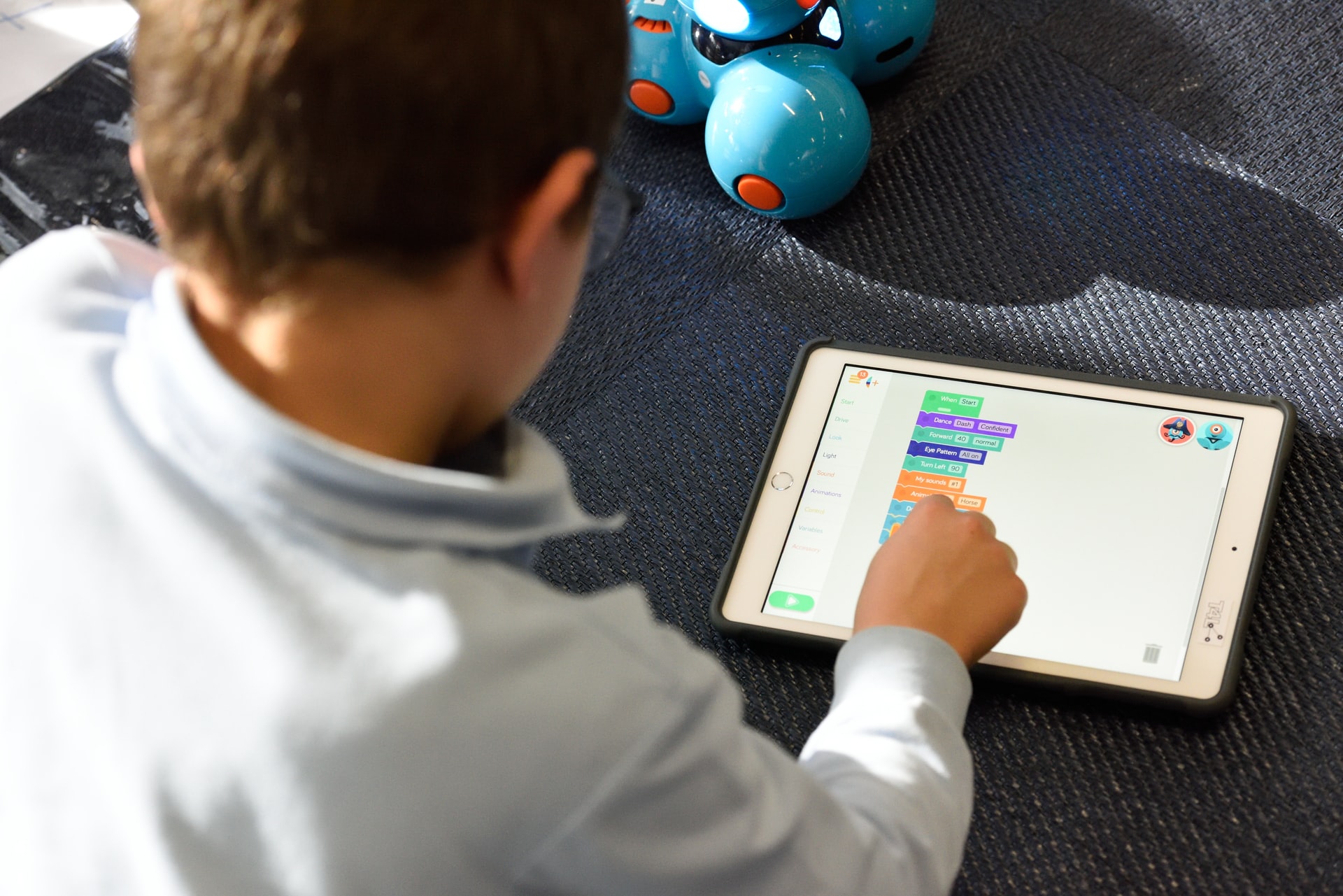
You should take some time every day to talk to your kids about what they've been assigned. Be kind in these interactions. Don't try to serve as their principal, but get a good idea of what they're learning about. If they know you're invested, there's a good chance they'll be more invested. If it's possible, try to make the assignments fun.
It's also fine to get involved and help. Just know your limit, and make sure you don't go overboard. "It's okay to help her with her homework if she is stuck, but don't do her work for her," writes Empowering Parents. "It's okay, for example, to review her work and ask her if a certain paragraph makes sense to her. But it's not okay to write every sentence with her or to work on every math problem with her."
4. Establish set hours.

Look over the curriculum and responsibilities for your children, and then structure their day around it. Routine is so important, especially when it involves education. If your children know what to expect every day, there will be less confusion and chaos.
"Routines allow students to quickly accomplish day-to-day tasks that are required of both the teacher and students," says Old Dominion University. "Routines also help to create smoother transitions between activities and therefore allow fewer opportunities for disruptions to occur."
5. Listen to your kids.
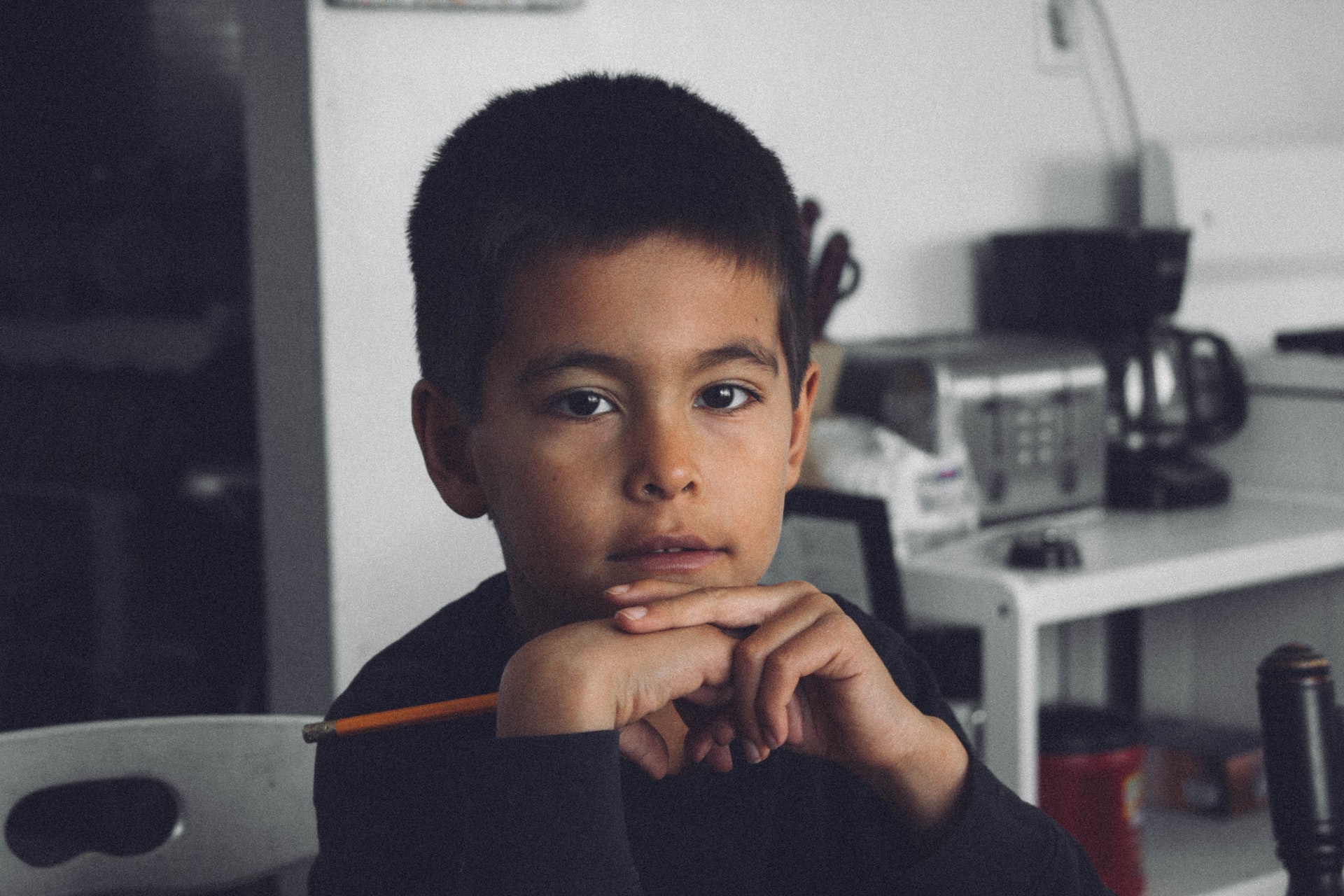
They might whine and complain, and that's standard. But if they're really having trouble learning remotely, don't shove that concern aside. People learn differently. While distance learning is one of the safest choices right now, there's no guarantee it'll be a great fit for your kid.
You might not have a choice on how they complete the semester, but by being on the same page with them, you'll be able to at least understand their inability to focus. Try offering small rewards if they get their coursework done.
HuffPost also suggests creating learning opportunities outside of a screen. For example, now's a great time to teach your children how to fold laundry, do dishes, and help run a household. It's also a great time to spend some one-on-one time with your kids, whenever you both get a few seconds away from the screen.
6. Try creating a checklist.
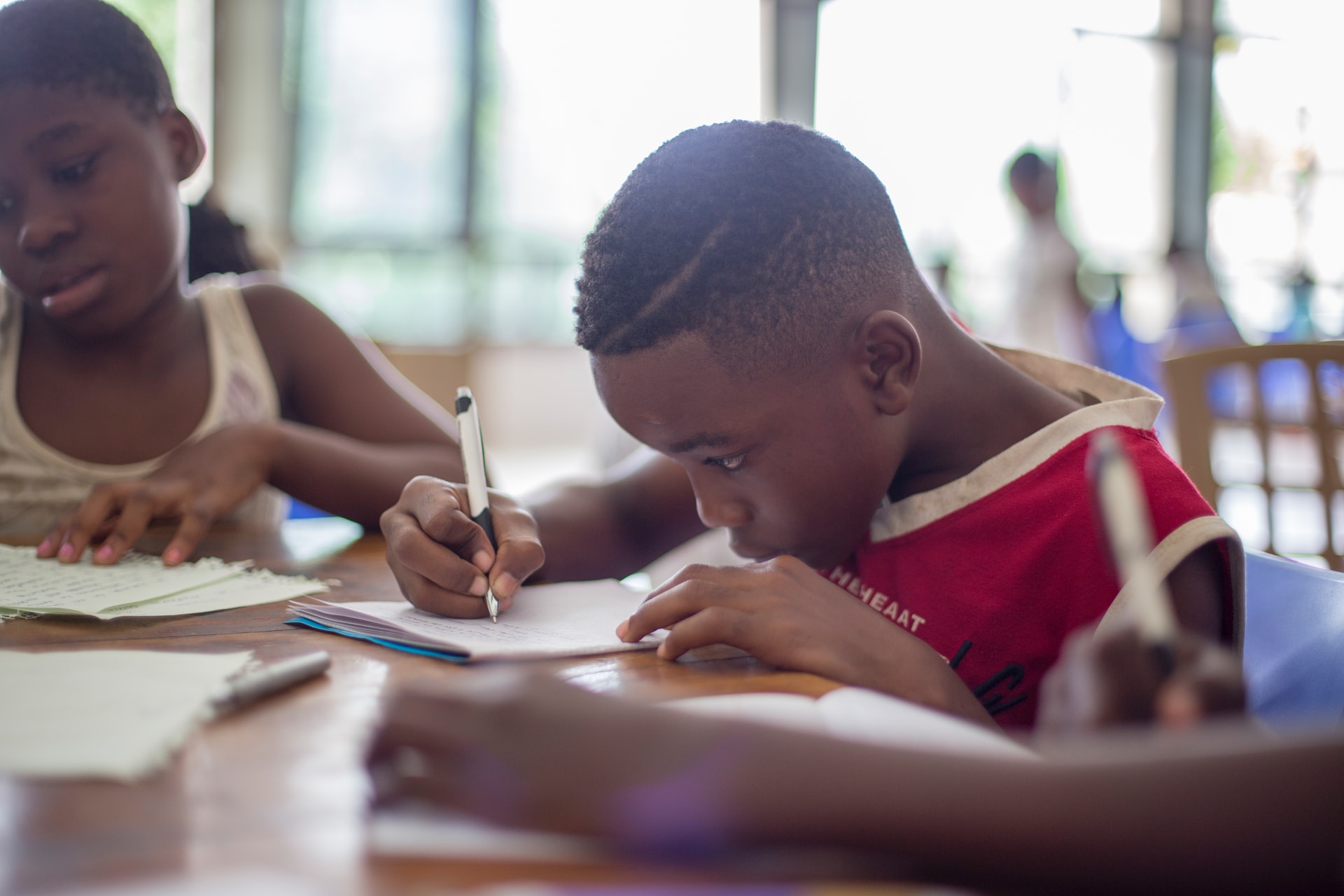
Some people absorb information better with visuals. That's why a checklist could be a great idea to promote productivity and lessen distractions. Every morning, consider making a checklist with your children of things they need to accomplish that day. Of course, the specified schoolwork is a big one. You can also use it for chores so that your kids know what you expect of them by the end of the day.
This method could change the whole way they stay organized. Plus, even better? All you need is a pencil and paper. (Or a smartphone.)
7. Let them know you support them.

Everyone has different parenting styles, but we're at a point right now where honesty is best. Children are living through a historical moment in time right now, and they've lost a lot. Sure, they might not be focused on whether or not this virus will prevent them from paying the bills, but this complete change in schedule is going to affect them.
Let your kids know that you, yourself, understand how hard this is. Be on their side. Tell them why it's actually important to learn how to stay focused. Long after this time period is over, that's going to be a very important skill for them to have. Kids often depend on their parents for stability, and right now, parents are having a hard time keeping up with it. Show them that you're on the same team, and you'll work as a family to get through this together.
When they finally find the motivation and determination, tell them how proud you are. Because keeping focused in a time like this is really difficult for all of us.







